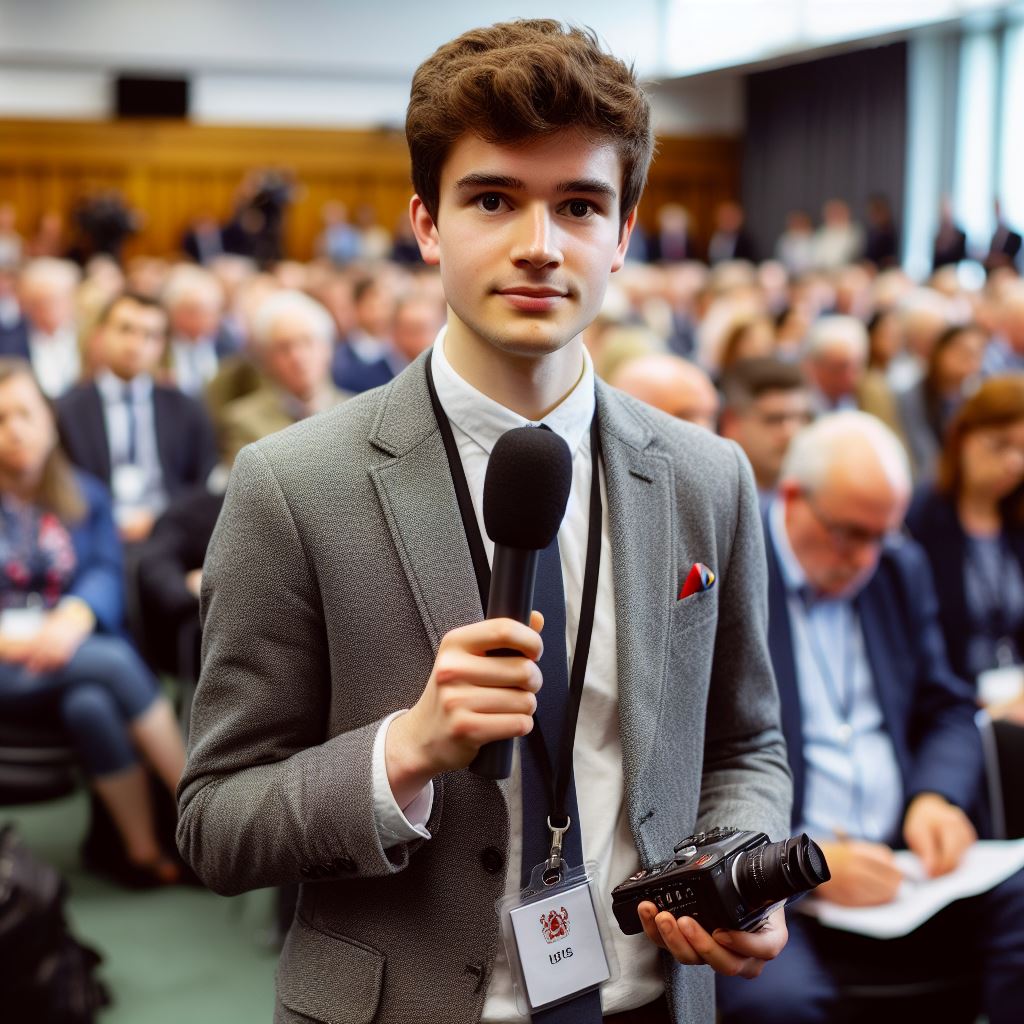Introduction
Did you know that poetry has been an integral part of British culture for centuries?
The poetry scene in the UK is a thriving and vibrant community that holds immense importance to its people.
“Immerse yourself in the captivating world of British poetry, where words dance like melodies across the centuries.
In this blog post, we will provide an overview of the poetry scene in the UK, exploring its rich history, influential poets, and contemporary trends.
This exploration not only unveils the evolution of poetic forms but also illuminates the diverse voices and themes that have shaped the Poetry Scene in the UK.
From the romantic whispers of the Romantic era to the bold declarations of modernity, discover the intricate interplay of language and emotion that defines the soul-stirring verses penned by poets from across the British Isles.
Join us on this odyssey through stanzas and sonnets, where each line unveils a piece of the cultural mosaic, inviting you to appreciate the timeless artistry that is the essence of the Poetry Scene in the UK.”
Historical Background of Poetry in the UK
Early origins of poetry in the UK
- Poetry has a long and rich history in the United Kingdom.
- The earliest known poetry in the UK dates back to the Celtic and Anglo-Saxon periods.
- These early poems were often recited or sung during important events and ceremonies.
- The oral tradition played a significant role in the transmission of these early poems.
- Many of these ancient poems were written in Old English and recorded in manuscripts like the Exeter Book.
Influence of famous British poets on the poetry scene
- British poets have had a profound impact on the development of poetry not only in the UK but around the world.
- William Shakespeare, often regarded as the greatest playwright in history, also wrote beautiful sonnets.
- John Milton’s epic poem “Paradise Lost” is considered one of the greatest works in the English language.
- The Romantic poets, including William Wordsworth and Samuel Taylor Coleridge, revolutionized poetry in the late 18th and early 19th centuries.
- The Victorian era saw the rise of poets like Alfred, Lord Tennyson, and Robert Browning, who explored complex themes and emotions.
Key milestones in the development of the UK poetry scene
- The establishment of the Poet Laureate position in the 17th century marked a significant milestone in the recognition of poetry in the UK.
- The formation of literary societies and clubs in the 18th century created spaces for poets to share their work and discuss ideas.
- The Romantic movement in the late 18th century emphasized individual expression and nature, shaping the future of poetry.
- The publication of influential poetry anthologies, such as Geoffrey Chaucer’s “The Canterbury Tales,” introduced a wider audience to poetry.
- The emergence of modernist poets like T.S. Eliot and W.B. Yeats challenged traditional poetic forms and themes in the early 20th century.
Overall, the historical background of poetry in the UK demonstrates its rich and diverse tradition.
From its early origins in ancient Celtic and Anglo-Saxon cultures to the influential poets who have shaped the poetry scene, the UK has a long-standing love affair with verse.
The milestones in its development, from the establishment of the Poet Laureate to the emergence of modernist poetry, have further contributed to its vibrant and evolving nature.
Poetry Forms and Styles
Introduction to various poetry forms and styles prevalent in the UK
Poetry in the UK encompasses a wide range of forms and styles that have evolved over time.
From traditional forms to contemporary styles, there is a rich diversity in the poetry scene.
These different forms and styles allow poets to express their ideas and emotions in unique ways.
Brief explanation and examples of traditional forms such as sonnets and haikus
- Sonnet: A 14-line poem with a specific rhyme scheme, often exploring themes of love and human experiences. Example: William Shakespeare’s sonnet 18 (“Shall I compare thee to a summer’s day?”).
- Haiku: A three-line poem of Japanese origin, usually capturing a moment in nature with a 5-7-5 syllable count. Example: Matsuo Basho’s haiku (“An old silent pond… / A frog jumps into the pond— / Splash! Silence again.”).
Exploration of contemporary poetry styles like spoken word and slam poetry
- Spoken word poetry: A form of poetry performed with emphasis on rhythm, tone, and delivery. It often addresses social issues and personal experiences. Example: Kate Tempest’s spoken word performance of “Brand New Ancients.”
- Slam poetry: A competitive form of spoken word poetry where poets perform their work in front of an audience. It emphasizes performance and audience engagement. Example: Phil Kaye’s slam poem “Repetition.”
Overview of free verse and its popularity in the UK poetry scene
Free verse: A form of poetry that does not follow a specific meter or rhyme scheme.
It allows for more freedom and experimentation with language. Example: T. S. Eliot’s “The Love Song of J. Alfred Prufrock.”
Personalized UK Career Consulting
Receive tailored career guidance designed just for you. Get actionable steps and expert support to boost your career in 1-3 days. Take control of your career now.
Get StartedImportance of diversity and inclusivity in the UK poetry scene
- The UK poetry scene embraces diversity in terms of voices, perspectives, and experiences.
- Inclusivity is encouraged, allowing marginalized voices to be heard and addressing important social issues.
- This diversity and inclusivity contribute to the vitality and relevance of the UK poetry scene.
Emerging trends and experimental forms in contemporary UK poetry
- Cut-up poetry: Creating new poems by rearranging words and phrases from existing texts. Example: Tom Phillips’ “A Humument.”
- Found poetry: Utilizing non-poetic texts, such as newspaper articles or advertisements, to create new poems. Example: Austin Kleon’s “Newspaper Blackout Poetry.”
- Visual and concrete poetry: Poems in which the visual arrangement of words and typography contributes to the overall meaning. Example: Ian Hamilton Finlay’s “Sea Poppy Number 10.”
The poetry scene in the UK is a vibrant mix of traditional and contemporary forms and styles.
Embracing diversity, inclusivity, and experimentation ensures the continued growth and relevance of UK poetry.
Read: Women in UK Journalism: Challenges & Wins
Poetry Institutions and Organizations
In the UK, poetry institutions and organizations play a significant role in fostering the growth and appreciation of this art form.
From promoting poetry to supporting and recognizing both established and emerging poets, these institutions contribute immensely to the poetry scene.
Overview of prominent poetry institutions and organizations in the UK
One prominent organization is The Poetry Society, which has been active since 1909.
It aims to connect people with poetry through a range of initiatives such as competitions, workshops, and publications.
Through its numerous activities, The Poetry Society provides a platform for poets to showcase their work and interact with like-minded individuals.
Another important organization is The Poetry Book Society, established in 1953.
Known for its influential book selections, it promotes the best new poetry publications through its membership program.
By highlighting outstanding poetry collections, The Poetry Book Society not only supports poets but also helps readers discover new and exciting voices in the poetry scene.
The National Poetry Library, located in the Southbank Centre, is a valuable resource for poets and poetry enthusiasts.
With its extensive collection of poetry books, magazines, and multimedia materials, the library provides a nurturing environment for poets to explore, research, and immerse themselves in the world of poetry.
Role of these institutions in nurturing and promoting poetry
These institutions and organizations go beyond just providing resources and platforms for poets.
Your Dream Job Starts with a Perfect CV
Get a tailored CV and cover letter that captures your unique strengths and stands out in your industry. Let us help you make an unforgettable first impression.
Get StartedThey actively contribute to the growth and development of poetry by organizing workshops, open-mics, and readings.
This offers aspiring poets opportunities to perform, receive feedback, and refine their craft.
Moreover, they often publish poetry magazines, allowing poets to share their work with a wider audience and gain recognition.
Examples of renowned poetry competitions and festivals in the UK
In addition to supporting poets individually, these institutions also foster a sense of community among poets.
By hosting events, competitions, and festivals, they facilitate networking and collaboration, creating space for poets to connect and learn from each other.
Renowned poetry competitions like The Forward Prizes for Poetry and The Ted Hughes Award provide recognition and support to outstanding poets, encouraging them to keep pushing the boundaries of the art form.
The UK is also home to numerous poetry festivals, attracting both local and international poets and enthusiasts.
Festivals like Aldeburgh Poetry Festival and Ledbury Poetry Festival bring together diverse voices, offering performances, talks, and workshops that celebrate the richness and depth of poetry.
Lastly, National Poetry Day is an important annual event that aims to bring poetry to the forefront of public consciousness.
Through nationwide celebrations, including events, activities, and promotional campaigns, National Poetry Day encourages people of all ages to engage with poetry and discover its power to inspire, provoke, and entertain.
In general, poetry institutions and organizations in the UK play a crucial role in nurturing, promoting, and celebrating poetry.
Through their initiatives, publications, and events, they provide opportunities for poets to thrive, connect, and share their work with a wider audience.
By supporting emerging and established poets, these institutions contribute to the vibrant and dynamic poetry scene in the UK.
Read: UK Writing Competitions: What to Enter
Optimize Your LinkedIn for Success
Boost your LinkedIn profile with a professional bio, keyword-rich headline, and strategic recommendations that attract recruiters. Stand out from the crowd and get noticed.
Optimize NowKey Figures in the UK Poetry Scene
Introduction to some influential poets in the UK
The poetry scene in the UK is brimming with talented and influential poets who have left an indelible mark on the art form.
From traditional to contemporary poetry, these figures have contributed to the rich tapestry of British literature.
Brief biographies and notable works of selected poets
- William Shakespeare: Born in 1564, Shakespeare is widely regarded as the greatest playwright in English literature. His sonnets and plays, such as “Romeo and Juliet” and “Hamlet,” continue to captivate audiences worldwide.
- William Wordsworth: As a leading figure of the Romantic movement, Wordsworth’s poetry celebrated nature and human emotions. His notable works include “Lines Composed a Few Miles above Tintern Abbey” and “The Prelude.”
- Alfred Lord Tennyson: Tennyson served as the Poet Laureate of Great Britain and Ireland during the Victorian era. His works, such as “The Charge of the Light Brigade” and “Ulysses,” explored themes of heroism and mortality.
- Sylvia Plath: Plath’s bold and confessional poetry earned her posthumous acclaim. Her collection “Ariel” and the semi-autobiographical “The Bell Jar” continue to resonate with readers today.
- Seamus Heaney: Heaney, an Irish poet, received the Nobel Prize in Literature in 1995. His works, such as “Death of a Naturalist” and “Digging,” delve into themes of Irish history, rural life, and identity.
- Carol Ann Duffy: Duffy became the first female Poet Laureate of the United Kingdom in 2009. Her poetry often explores themes of feminism and gender, and her collection “The World’s Wife” reimagines famous women from history and mythology.
- Benjamin Zephaniah: Zephaniah is a Jamaican-British poet known for his performance style and political activism. His works, such as “Talking Turkeys” and “Dis Poetry,” challenge social norms and advocate for equality.
Discussion on their impact and contribution to the poetry scene
These poets have contributed to the poetry scene in the UK in various ways, shaping the landscape of British literature and inspiring future generations.
Shakespeare revolutionized the use of language and storytelling in poetry and theater, leaving an enduring legacy that continues to inspire playwrights and poets.
Wordsworth’s emphasis on individual emotions and the natural world helped pave the way for the Romantic movement, influencing numerous poets who followed.
Tennyson’s works captured the spirit of Victorian society and became synonymous with the era, providing a nuanced perspective on contemporary issues.
Plath’s candid exploration of mental health and female experiences challenged societal norms and opened up discussions on important yet often taboo subjects.
Heaney’s poignant portrayal of Irish history and culture elevated the status of Irish poetry and brought it to an international audience.
Duffy’s appointment as the first female Poet Laureate marked a milestone for gender equality in the literary world, giving a voice to underrepresented perspectives.
Zephaniah’s poetry and activism have been instrumental in raising awareness about social justice issues and challenging the status quo.
Collectively, these poets have not only created remarkable bodies of work but also shaped the course of British poetry, influencing subsequent generations and ensuring the vitality of the UK poetry scene.
In brief, the UK poetry scene boasts a rich tapestry of influential figures who have contributed immensely to the art form.
From Shakespeare to Duffy, these poets have left an indelible mark on literature, inspiring and captivating readers with their words.
Their impact continues to resonate, making the UK poetry scene a vibrant and dynamic landscape.
Read: Historical Fiction Writing in the UK

Poetry Education and Workshops
Overview of poetry education opportunities in the UK
- Poetry education in the UK is diverse and offers numerous opportunities for aspiring poets.
- Universities and colleges provide undergraduate and postgraduate programs in creative writing with a focus on poetry.
- Various organizations and institutions offer workshops, seminars, and masterclasses for poets at different skill levels.
- Poetry societies and groups organize regular meet-ups, readings, and discussions to encourage learning and collaboration.
Available workshops, courses, and academic programs
- Workshops and courses are offered by renowned poets, writers, and literary organizations across the UK.
- These workshops cover various aspects of poetry, including form, technique, language, and performance.
- Many universities offer bachelor’s and master’s degrees in creative writing with a specialization in poetry.
- Online platforms provide accessible poetry courses, allowing individuals to learn from anywhere at their own pace.
Importance of poetry education in nurturing aspiring poets and writers
- Poetry education provides aspiring poets with a solid foundation in the craft, helping them develop their unique voice.
- Learning from experienced poets and attending workshops enhances technical skills and exposes poets to different styles.
- Participating in poetry education programs allows poets to receive constructive feedback and improve their work.
- Engaging with other poets in workshops and courses fosters a sense of community and encourages collaboration.
Overall, the availability of poetry education opportunities in the UK plays a vital role in nurturing aspiring poets and writers.
Whether through academic programs, workshops, or online courses, poets have various avenues to develop their skills, refine their craft, and gain exposure to different forms and styles of poetry.
By engaging with poetry education, individuals can explore their creative potential, receive valuable feedback, and foster a sense of belonging within the poetry community.
Read: Freelance Journalism in the UK: A Guide
Poetry Platforms and Publishing Opportunities
Introduction to various platforms where poets can showcase their work
- Open mic nights are popular platforms for poets to perform their work live.
- Poetry slams provide a competitive atmosphere where poets can showcase their skills.
- Literary festivals often organize poetry readings and workshops for poets to share their work.
- Writing workshops and poetry retreats offer opportunities to network and showcase your work.
- Poetry competitions provide a chance for poets to gain recognition and exposure for their work.
Discussion on poetry publications, literary journals, and anthologies
- Poetry publications like “Poetry Review” and “PN Review” offer opportunities for poets to submit their work.
- Literary journals such as “Granta” and “The Paris Review” publish poetry alongside other forms of literature.
- Anthologies compile a collection of poems from various poets, providing them with visibility and recognition.
- Submitting to literary magazines and journals can increase your chances of getting your work published.
- Publishing in anthologies can help establish your name in the poetry community and reach a wider audience.
Overview of online platforms and social media’s role in promoting poetry
- Online platforms like Medium and WordPress allow poets to create their own poetry blogs or websites.
- Social media platforms such as Instagram and Twitter provide avenues for poets to share their work and gain followers.
- Hashtags like #poetrycommunity and #instapoetry help poets connect with their audience and discover other poets.
- Online literary magazines like Rattle and Magma publish poetry and offer submission opportunities for poets around the world.
- E-books and self-publishing platforms like Amazon Kindle Direct Publishing enable poets to release their own collections.
In the vibrant poetry scene of the UK, poets have a multitude of opportunities to showcase their work.
They can perform at open mic nights and poetry slams, participate in literary festivals and workshops, and even compete in poetry competitions.
Poets can also submit their work to poetry publications, literary journals, and anthologies, both online and offline.
With the advent of social media and online platforms, poets can easily promote their work and connect with fellow poets and poetry enthusiasts.
The UK poetry scene offers a range of platforms and opportunities for poets to gain visibility, recognition, and a dedicated readership.
Challenges and Opportunities in the UK Poetry Scene
Identification of challenges faced by poets in the UK
- Limited financial support: Many poets struggle to earn a living solely through their craft.
- Lack of mainstream recognition: Poetry often receives less attention and funding compared to other art forms.
- Accessibility barriers: Traditional poetry venues can be exclusive and intimidating for diverse communities.
- Rigid publishing industry: Established publishing houses often favor popular or established poets, making it difficult for emerging talents to break through.
- Limited educational support: Schools and universities often prioritize other literary forms, neglecting poetry education.
Exploration of opportunities available for emerging poets
- Online platforms: The digital revolution has provided poets with a wide range of online platforms to showcase their work to a global audience.
- Poetry slams and open mic nights: These events offer emerging poets the chance to perform and gain exposure.
- Independent publishing: Many poets are embracing self-publishing or publishing through small independent presses to have more control over their work.
- Poetry festivals and literary events: Numerous festivals and events across the UK provide opportunities for poets to network, perform, and collaborate with other artists.
- Poetry competitions and grants: Various organizations and institutions run competitions and offer grants to support emerging poets financially.
Discussion on the future of the poetry scene in the UK
- Diverse voices and representation: The UK poetry scene is becoming more inclusive, with efforts made to amplify underrepresented voices.
- Integration of technology: The increasing use of digital platforms and social media allows poets to reach wider audiences and forge connections.
- Community engagement: Poetry collectives and workshops play a vital role in nurturing emerging talent and building a supportive poetry community.
- Education reform: There is a growing recognition of the importance of poetry education and efforts to incorporate it into school curriculums.
- Collaboration and interdisciplinary work: Poets are exploring collaborations with musicians, visual artists, and filmmakers to create innovative works.
In review, while the UK poetry scene faces challenges such as limited financial support and mainstream recognition, there are also numerous opportunities available for emerging poets.
The rise of online platforms, poetry slams, and independent publishing has provided unprecedented avenues for showcasing and sharing poetic voices.
The future of the poetry scene in the UK holds potential for greater diversity, technological integration, and community engagement, fostering a vibrant and inclusive literary landscape.
Conclusion
Throughout this blog post, we have explored the vibrant poetry scene in the UK.
We began by examining the rich history and traditions that have shaped British poetry.
We then delved into the modern landscape, highlighting the diversity and innovation found within the scene.
The poetry scene in the UK is not just a niche interest; it holds great cultural significance.
It serves as a platform for self-expression, a means of reflecting on society, and a way to connect with others.
Poetry has the power to heal, inspire, and provoke thought, making it a vital art form.
I encourage you to explore the Poetry Scene in the UK.
Attend local readings, engage with online communities, and support emerging poets.
By engaging with poetry, you can tap into a world of emotions, discover new perspectives, and contribute to a thriving artistic community.
Together, we can celebrate the beauty of words and keep the poetry scene in the UK alive and thriving.
Let your voice be heard and join this wonderful journey of creativity and connection.
[E-Book for Sale]
500 Cutting-Edge Tech Startup Ideas for 2024 & 2025: Innovate, Create, Dominate
$19.99 • 500 Tech Startup Ideas • 62 pages
You will get inspired with 500 innovative tech startup ideas for 2024 and 2025, complete with concise descriptions to help you kickstart your entrepreneurial journey in AI, Blockchain, IoT, Fintech, and AR/VR.




